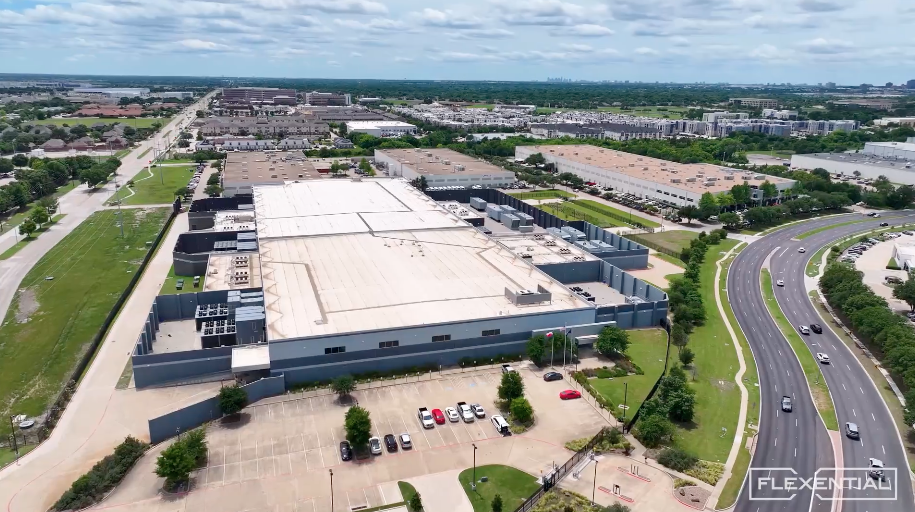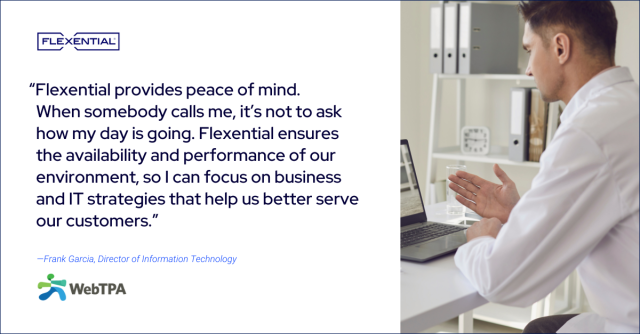8 essential steps: Data center site selection and how to choose a provider
The importance of data center site selection and choosing the right data center provider cannot be overstated. With the constantly evolving business landscape, emerging technologies, and increasing reliance on digital infrastructure, ensuring your business has a secure, reliable, and scalable data center is crucial. In this guide on how to choose a data center provider, we will walk you through the essential steps and key considerations, helping you make informed decisions for your business's long-term success.

Why you need to choose the right data center provider
Selecting the right data center provider is essential to guarantee that your IT infrastructure is secure, dependable, and capable of expansion. The average cost of a cyber attack on data centers is estimated to be approximately $4 million, emphasizing the global scale and the need for robust security. Furthermore, businesses must be prepared for natural disasters and power failures, which can cause significant damage to operations if not adequately addressed.
Security is a crucial component of colocation data centers, ensuring the safety of client setups and information. On-site support and in-house staff also play a vital role in maintaining the smooth functioning of your IT infrastructure, particularly in the event of an unexpected issue or natural disaster.
Data center operations are impacted by real estate costs, utilities, local regulations, and incentives, all of which can affect the profitability and efficiency of data center operations.
Choosing the wrong provider can lead to many problems, including increased operational costs, lack of scalability, and potential security breaches. Therefore, it is critical to thoroughly evaluate potential providers to ensure they meet your business needs and can effectively support your IT infrastructure.
Benefits of choosing the right data center provider
By choosing the right data center or colocation provider, your business can benefit from increased efficiency, cost reduction, and access to a variety of services. Colocation services are often more cost-effective than in-house solutions, allowing companies to leverage the provider’s infrastructure and expertise, resulting in a more streamlined operation. Having a data center close to your business operations can further enhance performance by reducing latency, improving data transfer speeds, and ensuring a seamless user experience.
However, selecting the wrong data center can lead to higher costs and inefficiencies. For instance, the upfront investment required for colocation services is typically higher than that of cloud computing hosting solutions, making it essential to choose a provider that offers the right balance of cost and flexibility. Furthermore, utilizing a third-party facility for equipment setup provides the advantage of attaining high levels of cyber and physical security without having to dedicate considerable resources to IT setup and personnel.
Choosing a provider that offers a wide range of services, such as colocation, cloud computing, disaster recovery, and managed services, allows your business to access the resources it needs to grow and evolve. Additionally, a provider with robust network connectivity options and carrier neutrality can help ensure that your IT infrastructure remains agile and responsive to industry changes.
Assessing your needs and goals for a data center provider
Understanding your business needs and goals is critical. This involves evaluating the data center site, including factors such as location, reliability, connectivity options, potential natural disaster risks, power costs, and power grid reliability. By considering these factors, you can accurately identify the data centers that will best serve your business's needs.
It is essential to align your data center selection with your IT organization’s business objectives. For instance, if your business strongly focuses on e-commerce, ensuring low latency and high availability will be crucial in providing an optimal customer experience. By assessing your needs and goals, you can make a more informed decision that aligns with your overall business strategy.
Key considerations for how to choose data center provider
To further refine your data center site selection process, here are the key considerations to keep in mind:
- Location
- Power and cooling
- Security measures
- Scalability and flexibility
- Reliability
- Network connectivity
- On-site support and service level agreements (SLAs)
- Reputation and viability
In the following sections, we will delve into these factors in more detail, providing a comprehensive understanding of what to look for when evaluating potential providers.
Data center location matters
The location of a data center is a primary consideration when selecting a provider. Proximity and edge computing are essential factors to consider, as they can influence the responsiveness and performance of your IT infrastructure. Moreover, power and fiber paths play a critical role in determining the reliability and connectivity of data centers, making it imperative to evaluate these aspects when considering potential locations.
It is also important to evaluate data center facilities for physical specifications, environmental risks, and power availability to ensure efficiency, cost-effectiveness, and sustainability.
The data center facility location is also of utmost importance for the dependability and security of your IT equipment. Natural disasters, such as floods, hurricanes, and earthquakes, can pose significant risks to data centers. Therefore, ensuring that the chosen facility is situated in an area with minimal vulnerability to these events is crucial.
Having a data center near your business offers several advantages, including enhanced accessibility to a company’s office space for IT personnel and diminished issues during power interruptions. Ultimately, selecting a data center location that balances accessibility, connectivity, and safety is vital to the long-term success of your IT infrastructure.
Power and cooling
With the high cost of outages, keeping the power on and having adequate cooling systems in place is essential. Ideally, redundancy would be established through a multi-path configuration so that if one system fails, the other can take over.
Assessing power availability and local utility capabilities, including the reliability and stability of the power supply, is crucial for the design and operational efficiency of data centers.
Data center cooling is essential for keeping customer equipment operating at its peak. It may include innovations such as deep lake water cooling, free air cooling, cold-aisle containment, and more.
Physical security measures
Securing your IT infrastructure is a top priority, and selecting a provider with robust security is essential. Security, such as locks, surveillance, and vendor on-site security personnel, help safeguard your equipment and data from unauthorized access. In addition to physical security, strong cybersecurity measures, including data encryption and access control, are crucial in protecting sensitive information and preventing breaches.
It is important to assess the provider's security measures to accurately evaluate a data center's security and not solely rely on the information provided by sales teams. Additionally, ensuring that the data center has an appropriate fire suppression system and backup solutions for critical components, such as HVAC and power, can help minimize the risk of downtime due to accidents or natural disasters.
Scalability and flexibility
A crucial aspect of selecting a data center is the ability to scale up or down as your business grows and evolves. Providers that offer flexibility in their services, such as customized solutions alongside their standard offerings, can help ensure that your IT infrastructure remains adaptable and responsive to changing requirements.
Building a data center requires a specialized construction process that includes installing specific equipment and infrastructure essential for technology support. Real estate factors, such as land acquisition costs, skilled labor, and operational expenses, are also critical in site selection and overall feasibility.
When evaluating the potential for additional space and power in data centers, it is important to consider the provider’s capacity to accommodate your organization’s expansion in the future. This includes assessing the availability of additional colocation facility space, power resources, and connectivity options as your business needs change.
Prioritize reliability
Reliability is a critical factor in selecting a data center. According to the Uptime Institute Tier Classification System, a reliable, top-tier data center should have an uptime of at least 99.982%. Flexential, for example, offers a 100% service level agreement for uptime on critical services, ensuring that your IT infrastructure always remains operational and accessible.
Managing operating costs, including rent, utilities, and taxes, is also crucial when selecting a site for a data center. Finding locations with competitive real estate prices and favorable tax rates can significantly minimize overall operational expenses.
One of the most important reliability aspects is the implementation of emergency backup measures and fire suppression systems. In addition, power redundancies and an uninterruptible power supply (UPS) can help ensure consistency and business continuity during power outages.
The significance of reliability in a data center is underscored by companies that experienced a disruption of their data center for ten days or more due to a disaster and ultimately filed for bankruptcy within one year. Ensuring that your data center has disaster recovery plans in case of mishaps or power failures, prioritizes reliability across multiple data centers, and has a robust infrastructure to minimize downtime is essential for the long-term success of your business.
Network connectivity
Connectivity is a significant factor when selecting a data center provider. Interconnection within a shared space provides added value to a business, enabling seamless communication and collaboration between different systems and networks. Carrier neutrality is also crucial in a data center operator selection, as it provides the flexibility to transition between providers in the event of an issue and fosters a competitive environment for network carriers.
Access to various networks, network providers, and operators can also facilitate the establishment of hybrid and multi-cloud infrastructures without the risk of vendor lock-in. This ensures that your IT infrastructure remains agile and responsive to industry changes while providing the best possible performance and connectivity options for your business.
On-site support and Service Level Agreements (SLAs)
On-site support, customer service, and SLAs are essential components to consider when choosing a data center provider, as they guarantee that your IT infrastructure is monitored and maintained. Remote hands support, for instance, is an in-house, 24/7 service providing engineers to assist with emergencies or complete tasks such as server checks, reboots, and network maintenance.
Read more about how WebTPA utilizes the FlexAnywhere platform for colocation, cloud-based recovery, and cybersecurity to promote uptime and performance.
Service Level Agreements (SLAs) can create clear agreements between a data center provider and a customer, defining protocols for addressing issues and guaranteeing specific levels of performance and reliability. By considering the SLAs offered by the data center provider and their customer service and on-site support, you can ensure that you have a reliable and responsive partner in managing your IT infrastructure.
Evaluate reputation and viability
Assessing a data center provider's reputation and viability is crucial. A provider's reputation can provide an understanding of how they handle problems and potential issues, helping you make informed decisions about their suitability for your IT infrastructure.
To gain insight into a data center provider's service record and history, conduct thorough research, seek out testimonials, and obtain feedback from current clients. By evaluating the reputation and viability of potential data center providers, you can ensure that you select a partner that aligns with your business needs and long-term goals.
Why Flexential data centers are the right choice
With a broad, end-to-end product portfolio, Flexential data centers offer a comprehensive suite of services, including colocation, cloud, managed services, and disaster recovery solutions. Flexential is committed to providing customers with the highest levels of security, reliability, and scalability, ensuring that your IT infrastructure remains protected and optimized for growth.
With a strong focus on security, Flexential data centers provide a comprehensive suite of protections, including security, access control, a proper fire suppression system, and environmental monitoring tools. Their commitment to scalability and flexibility ensures that they can accommodate the varying needs of their customers, offering a comprehensive range of services that can easily scale up or down according to requirements.
Regarding reliability and network connectivity, Flexential guarantees an uptime of 99.999% and offers dependable and secure network connectivity with multiple redundant connections. By choosing Flexential as your data center partner, you can be confident that your IT infrastructure is in the hands of an experienced and reliable provider.
In short, the Flexential full suite of data center service capabilities delivers long-term value and efficiency for even the most IT-intensive businesses.
Summary
In conclusion, whether you are just starting your search, or migrating from another provider, selecting the right data center provider is a critical decision that can significantly impact the success and growth of your business. You can make informed choices that align with your business needs and long-term goals by considering factors such as location, security, scalability and flexibility, reliability, network connectivity, on-site support, customer service, and SLAs.
As you embark on your journey to find the perfect data center provider, remember that providers like Flexential Data Centers offer a comprehensive suite of services designed to support and protect your IT infrastructure. With their commitment to security, reliability, and scalability, you can rest assured that your business's critical infrastructure is in capable hands, ready to thrive in today's fast-paced digital landscape.
Frequently asked questions
What are the key factors to look for when choosing a data center?
When selecting a data center location, the key factors are physical security, data privacy regulations, available infrastructure and connectivity options, and local climate control. These variables must be carefully weighed to ensure your data is adequately secured and readily accessible.
What are the key factors when choosing a data center location?
When evaluating potential data center locations, key factors such as security, connectivity, cost, physical environment, local labor markets, local infrastructure, and availability of renewable energy sources must be considered. Access to reliable resources and the ability to prepare for potential natural disasters are crucial aspects of data center placement that must be considered.
Additionally, secure and reliable data storage solutions are essential in data center site selection. Choosing the right data center is pivotal in ensuring optimal performance and security for businesses, ultimately affecting the safekeeping of sensitive information and operational efficiency.
What is one of the first factors to consider when deciding whether your company would benefit more from a colocation or an on-site data center?
One of the most critical factors when deciding between a colocation facility and an on-site data center is your company's physical access. If there is easy and reliable access, then the on-site option may be more beneficial. Otherwise, the costs associated with a full colocation facility may be worth it for peace of mind.
What should I look for in a data center?
When selecting a data center, it is essential to look for an experienced provider that offers reliability, physical and network security, flexibility, scalability, a 100% uptime Service Level Agreement (SLA) on critical services, and robust infrastructure.
Explore the fleet of Flexential data centers, which provide a complete set of reliable data center services backed by industry-leading expertise.






